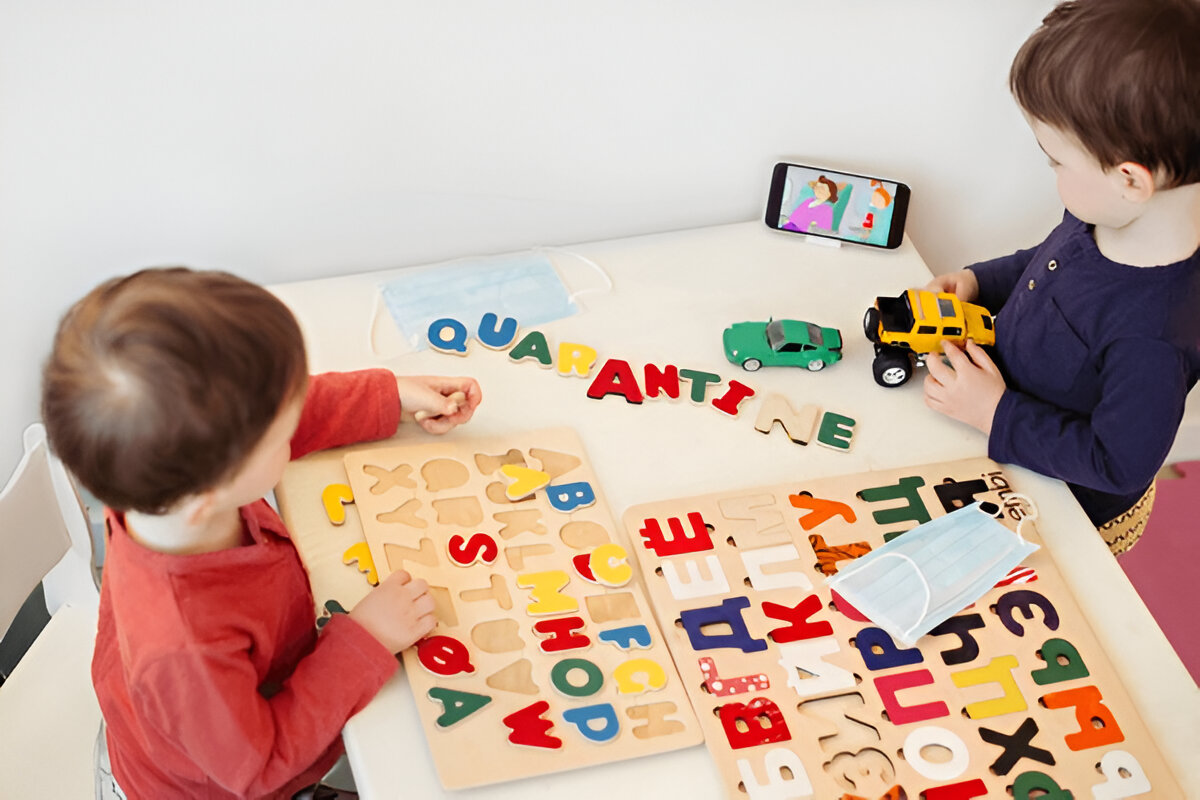As parents, we eagerly guess our child’s milestones, including their first words. From the first litter to the happy moment when they eventually say “Mother’s Uncle” (Mama in India) or “Grandpa”, these milestones mark considerable progress in their development. However, some toddlers experience delay in speech and language development, which may raise concern for the parents. If your child does not speak until 2 years or has difficulties in communication, it may be a red flag for development issues such as Autism Spectrum Disorder (ASD).
In this blog post we will discover delayed speech, potential causes and common signs of parents, what parents can do if they are concerned about the development of the child’s language.
Delayed voice and language development signs
The development of speech and language varies from child to child. However, there are normal milestones that most children grow. According to American Speech-Language-Hearing Association (ASHA), for 12-18 months, many children begin to say simple words like “Mother’s Uncle”, “Grandpa” or Name of Famous Objects. At the age of 2, most children should have a terminology of about 50 words and simple sentences can begin. However, for kids who are on the autism spectrum, these milestones maybe achieved at slow pace than the expected age.
Limited to the age of 2 or no speech: Language of a child who has not begun to speak at the age of 2 or has very few words, it may be a sign of a linguist. Although some children may be slow to speak, the frequent delay in development should be taken seriously.
Limited social communication: Delayed speech in toddlers can often arise with difficulties with other aspects of communication, such as making eye contact, responding to their names or understanding simple instructions. If a child struggles to participate in social communication or seems unaware of others, it may be a warning signal.
Lack of movements: At the age of 1, most toddlers begin to use gestures to communicate, such as pointing, waving or shaking their heads. If a child does not use gestures, it may indicate challenges with non-verbal communication, which is often associated with speech delay.
Possible cause of delayed speech:
There are many reasons why a child may experience delayed speech and language development. These can vary from medical conditions to environmental factors. Some of the most common causes include:
Autism Spectrum Disorder (ASD): Children with ASD often have difficulties with language development, social interaction and behavior. Delayed speech, e coli and difficulty creating sentences are common in children on the autism spectrum. For more details, refer this post
Hearing loss: Hearing difficulties can affect the child’s ability to develop speech. If a child cannot listen clearly, they may struggle to understand and produce words.
Speech or language disorder: Some children may experience specific speech or language disorders that affect their ability to produce words or understand the language. Apraxia of speech, where the brain has difficulty coordinating the movements required for speech, can lead to a delay in language development.
Limited Social Communication: Delayed speech in toddlers can often be accompanied by difficulty with other aspects of communication, such as making eye contact, responding to their name, or understanding simple instructions. If a child struggles to engage in social communication or seems unaware of others, this could be a warning sign.
Lack of Gestures: By age 1, most toddlers begin to use gestures to communicate, such as pointing, waving, or shaking their head. If a child isn’t using gestures, it may indicate challenges with non-verbal communication, which are often linked to speech delays.
Potential Causes of Delayed Speech
There are several reasons why a child may experience delayed speech and language development. These can range from medical conditions to environmental factors. Some of the most common causes include:
Autism Spectrum Disorder (ASD): Children with ASD often have difficulties with language development, social interaction, and behavior. Delayed speech, echolalia, and difficulty forming sentences are common in children on the autism spectrum.
Hearing Loss: Hearing difficulties can significantly impact a child’s ability to develop speech. If a child cannot hear clearly, they may struggle to understand and produce words.
Speech or Language Disorders: Some children may experience specific speech or language disorders that affect their ability to produce words or understand language. Conditions like apraxia of speech, where the brain has difficulty coordinating the movements needed for speech, can also result in delayed language development.
Environmental Factors: In some cases, a lack of exposure to language-rich environments can contribute to delays. Children who are not regularly spoken to, read to, or engaged in conversations with adults and peers may not develop language skills as quickly.
When to Seek Help ?
If you notice that your toddler isn’t meeting common speech and language milestones, it’s essential to seek guidance from a healthcare expert. Early Intervention can make a full-size difference in a baby’s improvement. Here are some steps mother and father can take:
Consult with a Pediatrician: Start through discussing your concerns together with your child’s pediatrician. They can compare your baby’s universal development and refer you to experts if important.
Speech-Language Pathologist (SLP): A speech-language pathologist can determine your infant’s speech and language talents. If a delay is detected, the SLP can increase a tailored remedy plan to help infant enhance their verbal exchange capabilities.
Hearing Test: If speech put off is suspected to be associated with listening to problems, a hearing test can rule out or affirm any troubles with hearing.
Early Intervention Services: In many regions, there are packages that offer early intervention services for youngsters with developmental delays. These programs can provide remedy and help to help children seize as much as their peers.
What Parents Can Do at Home?
While it’s crucial to are seeking for expert assist, there also are things mother and father can do at domestic to assist their infant’s language development:
Engage in Conversations: Talk to your toddler as much as viable, even supposing they aren’t speaking in return but. Encourage your toddler to respond, and provide them lots of time to system and react. Learn about social behavior of your toddler from this post
Read Together: Reading books along with your infant can decorate their vocabulary and know-how of language. Choose age-suitable books and inspire them to factor to objects or repeat simple words.
Use Simple Language: Use short, clear sentences and repeat words to help your child grasp new vocabulary. Focus on one word or phrase at a time, especially if they are just starting to speak.
Encourage Play: Playtime is a great opportunity for language learning. Play pretend games, sing songs, or use toys to model language and stimulate your child’s speech development.
Conclusion
Speech and language delays in toddlers are not uncommon, and while they can be concerning, early intervention can help children improve their communication skills. By recognizing the signs of delayed speech and understanding the potential causes, parents can take proactive steps to ensure their child receives the support they need. If you have concerns about your child’s development, don’t hesitate to seek guidance from a pediatrician or speech-language pathologist. The earlier the intervention, the better the outcome for your child’s long-term language development.





